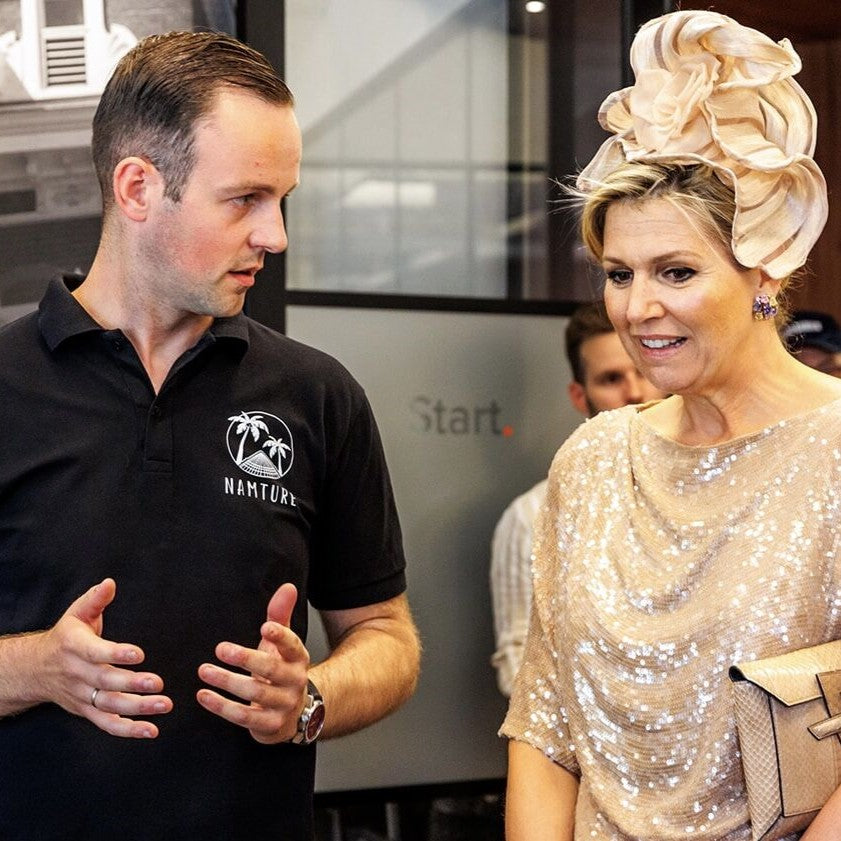Bergschenhoek/Vietnam/Ermelo – A few weeks ago there was a stall at the regional market in Berkel en Rodenrijs with beautiful sustainable items made from coconut shells. Curiosity has been aroused as to how and where these products are made.
Mandy de Heer from Bergschenhoek is married to Marinus Pul from Ermelo and his brother Jan has been living in Ho Chi Minh City in Vietnam for a few years. “Four years ago I went to Vietnam for my studies – finance & control,” says Jan. “I really liked that and I also met my girlfriend there. I started traveling around and ended up in Ben Tre, which is known as the largest coconut area in Vietnam - and in the world. I saw coconut shells being burned or thrown on the side of the road after the 'contents' had been used. I already had plans to do something with locals in Vietnam together with Marinus because I knew I wanted to go back anyway. When I saw those bowls along the road I thought: they can be used for completely different products, for example polished and oiled as bowls or candles, filled with coconut wax. I looked for a local coconut farm and came into contact with local farmers who would make the products. It turned out that they already existed, but in very small quantities and hardly in the Netherlands. At one point I went back to the Netherlands and when corona came I couldn't go back. That is why we started production and sales last year. For example, we sell our products at the regional market and via our website. We now mainly focus on promotional gifts for companies.”
Innovation and sustainability
Jan regularly visits the factories to ensure that everything is running smoothly and to come up with new products. “The employees also think about innovation and sustainability. The locals pick the coconuts; there are different kinds. The pulp and juice are removed, then the hairs are sanded from the shells. Then you are left with a hemisphere that is polished or processed. In this way we reuse something that is actually a waste product. Burning the dishes is bad for the environment and this way we can also put the local population to work. It is a great way to process 'waste'. The farmers have extra income because the bowls are used, extra employment is created, you prevent combustion, which is bad for the environment, and it is a sustainable alternative to plastic. The knife actually cuts both ways because part of the profit flows back to the population. We donate part of the profits to help the local population. We do this very locally, for example there is an orphanage to which we have made a donation. We also buy things locally for the orphanage.
Orphans
Marinus and Mandy were here a while ago to see how things are going. If you see certain things here you would like to help. Orphans in particular have little future in Vietnam. That also gives the motivation to continue with our business so that the local population can benefit from it. We only sell our products in the Netherlands. It takes a lot of time, but we are getting good responses from companies. The interest is clearly there, but the start-up takes time. We also think about new products. Trees also do not last forever, so if they are cut down they can perhaps be made into cutting boards instead of being burned.
The story behind our products is very important. It's nice to know that you have a cutting board made from a palm tree that would otherwise be burned. The entire market is also looking for sustainable products with a story behind them. Qredits provides microcredits to starting entrepreneurs. A new building is being opened and during the opening we can have a stall with products there. Only a few companies have been invited, so we think they will see value in it and that gives confidence. Maxima is also coming, so perhaps there will soon be a bowl of ours in the royal palace, which would of course be great fun. In any case, we are very proud of what we have achieved so far.”



